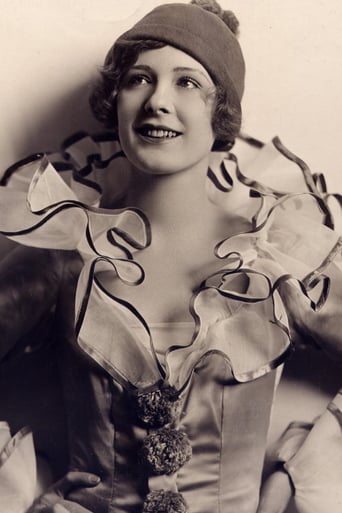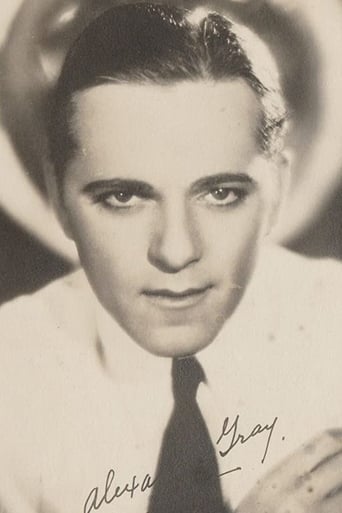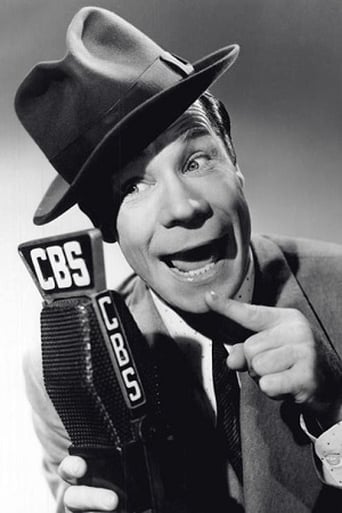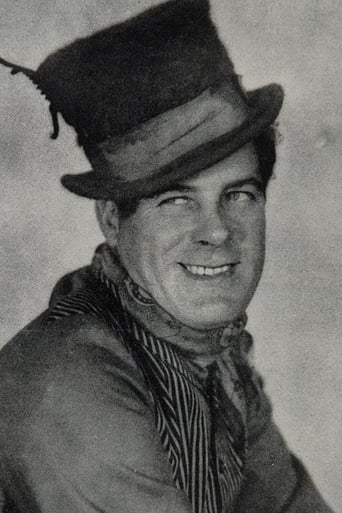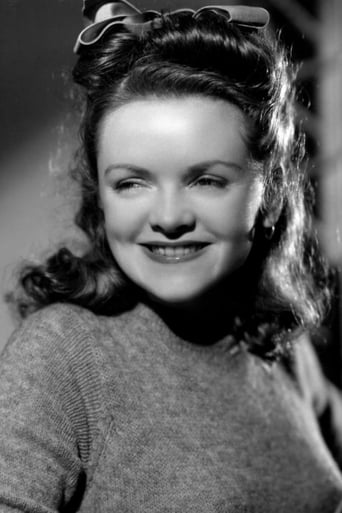wes-connors
While dreaming of a Broadway musical career, bubbly blonde dancer Marilyn Miller (as Sally Bowling Green) works as a New York waitress. One busy day, Ms. Miller becomes love-stricken with handsome passer-by Alexander Gray (as Blair Farrell). Likewise interested and obviously well-heeled, Mr. Gray is unfortunately engaged to another woman. Nevertheless, they begin a courtship. Miller tells Gray about her lowly orphan past and high aspirations. Gray tells Miller to "look for the silver lining." Miller is also encouraged by wise-cracking waiter Joe E. Brown (as Connie). Later, Miller's impersonation of a Russian diva helps put her on the road to stardom...Produced by Florenz Ziegfeld Jr., the Cinderella-like "Sally" (1920-1922) was a huge Broadway success for Miller. With this show, plus her high-profile 1922 marriage to Hollywood royalty (Mary's brother Jack Pickford), Miller was a big star before she ever made a motion picture. Reportedly, the Pickfords did not get Miller in the movies earlier because they felt her skills were not flattered by the silent movie medium; this is evident. "Sally" (also a re-make of the hit 1925 "silent" version starring Colleen Moore) was a top-line production, in full Technicolor. Gray sounds great as Miller's leading man and Brown is a best supporting actor - even without kissing T. Roy Barnes...Unless more is found, only a rough black-and-white print of "Sally" survives. The only color portion available has most of Miller's "Wild Rose" dance and a small portion of Mr. Brown's subsequent scene. These brief color minutes indicate the whole work was visually quite appealing. However, the staging and plot are not spectacular. Miller's dancing is a highlight. Probably, she would have been a bigger musical movie star in the 1940s. Her great comic "pas de deux" with Brown makes one long for other Miller dance team-ups. Jerome Kern's music is most memorable. "Look for the Silver Lining" became a #1 million-selling hit song in 1921, and a standard thereafter.****** Sally (12/23/29) John Francis Dillon ~ Marilyn Miller, Alexander Gray, Joe E. Brown, T. Roy Barnes
lugonian
SALLY (First National Pictures, 1929), directed by John Francis Dillon, from the Florenz Ziegfeld musical-comedy, introduces stage star Marilyn Miller (1898-1936) to the screen in a role for which she's most principally linked. Although Miller originated "Sally" on Broadway in 1920, it was Colleen Moore who originated the role on screen in the 1925 silent comedy for First National with Leon Errol (who appeared opposite Miller on Broadway) and Lloyd Hughes. For Miller's motion picture debut, her introduction comes with a close up of her feet doing ballet steps before the camera follows them walking over the next table where Sally (in full focus) is seen carrying a tray of food to her next customer. Produced in two-strip Technicolor, with choreography by Larry Ceballos, SALLY is a prestigious start to Miller's short-lived Hollywood career.The story revolves around Sally Green (Marilyn Miller), a young woman raised in an orphanage now earning a living as a waitress at a crowded New York City restaurant, whose one ambition is to become a dancer. After Sally makes an impression on Otis Hooper (T. Roy Barnes), a theatrical agent dining with Rosie (Pert Kelton - almost unrecognizable as a brunette), she loses her chance as well as her job when she accidentally spills a tray of food all over him. Sally acquires another job waiting on tables at the Elm Tree Inn managed by "Pops" Shendoroff (Ford Sterling), with Connie (Joe E. Brown), formerly Constantine, Grand Duke of Checkercovinia, working as a waiter. Sally soon makes the acquaintance of Blair Farell (Alexander Gray), the son of an aristocratic father (E.J. Ratcliffe) who arranged for him to marry socialite Marcia Ten Brook (Nora Lane). Blair, who had earlier noticed Sally through the window of the restaurant, takes an interest in Sally and arranges to have Schendorff dance for the customers, one of them being Otis Hooper. Hooper later encourages Sally to perform at Mrs. Ten Brook's (Maude Turner Gordon) garden party, which she does, under the guise of Madame Noskerova, the famous Russian dancer, at the same time Connie makes his grand entrance as the Grand Duke. When Schendorf gives away their identities, Mrs. Ten Brook orders Sally to leave, which she does after hearing Blair's announced engagement. Although Sally achieves stardom dancing for the Ziegfeld Follies, she finds she's unable to forget about Blair. With music and lyrics by B.G. DeSylva, Al Dubin, Joe Burke, Clifford Grey and Jerome Kern, the musical program is as follows: "Look For the Silver Lining" (sung by Alexander Gray and Marilyn Miller); "Sally" (sung by Alexander Gray); "Look For the Silver Lining" "Sally" and "Look For the Silver Lining" (danced by Miller and Joe E. Brown); "If I'm Dreaming, Don't Wake Me Too Soon" (duet by Miller and Gray); "Walking Off These Balkan Blues" (danced by Joe E. Brown); "All I Want to Do Do Do is Dance" (sung by Miller); "Wild Rose" (sung by Miller and male chorus); "If I'm Dreaming, Don't Wake Me Too Soon" (reprise by Miller and Gray); Russian dance number performed by the Albertina Rasch Ballet; and "Broadway Follies" instrumental ballet/ dance numbers (performed by Miller).With SALLY available in black and white format, only the "Wild Rose" dance sequence survives in its original, yet slightly fuzzy, Technicolor form. The song, "Look for the Silver Lining," most associated with Miller, was used as the title to a Warner Brothers 1949 bio-pic starring June Haver as Marilyn Miller. If the score to "If I'm Dreaming" sounds familiar, it was used for a dance sequence between Douglas Fairbanks Jr. and Glenda Farrell in the gangster classic, LITTLE CAESAR (1930) starring Edward G. Robinson. Alexander Gray, a deep voice baritone, notable for his screen teaming with Bernice Claire in early Warners musicals of 1929-30, is acceptable as the leading man, though wasn't quite the type to survive the movie medium to the next decade. Joe E. Brown, still early in his career before starring in his own comedies, has little opportunity being funny but does provide some highlights, including a comedy dance with Miller, and another as a waiter escorting an old man (Jack Duffy) and his young date (Ethel Stone) up a latter to their table with a view, proving to be troublesome for all. As for Marilyn Miller, she would follow SALLY with more singing, dancing and romancing with SUNNY (1930) and HER MAJESTY, LOVE (1931) before returning to Broadway. Of the three, SALLY is most acceptable mainly for being a recorded document of her stage play, while SUNNY, another screen adaptation, disappoints for anyone who had seen the stage version to find much of the original score missing from the final print. HER MAJESTY, LOVE, intended to be something original, offered nothing new in the genre of sophisticated director, Ernst Lubitsch.With so many 1929-30 musicals currently lost or incomplete, SALLY was fortunate to have survived intact at 100 minutes, even without the color. Unavailable for viewing since its initial theatrical release, SALLY made it to television on Turner Classic Movies in August 1994, where this and other Marilyn Miller musicals enjoyed occasional revivals for the next few years. (***)
bkoganbing
This is one early sound film that fortunately is not lost because it gives us the opportunity to see one of the biggest Broadway stars of her era give her breakout performance. Too many people have forgotten Marilyn Miller, she was the Madonna of her day in more ways the one.And in 1919 Sally was the role that made her a Broadway star. It's a Cinderella story, the kind that was popular back in the day. She's a foundling, raised in an orphanage and working as a dishwasher/server at a café where she's discovered. She finds stardom in the Ziegfeld Follies where Marilyn Miller actually did appear and the man of her dreams in Alexander Gray.Of course it's not all smooth sailing and the girl does have to do a stint at a society party masquerading as a fortune hunting dancer from Europe, an idea press agent T. Roy Barnes dreams up when the real dancer who's his client runs out on him. You might remember Barnes best from a small role in It's A Gift where he tries to sell a weary W.C. Fields some insurance. On stage the part was played by Walter Catlett.This was also the film that brought Joe E. Brown a long term contract with Warner Brothers/First National as their leading comic star in the Thirties. Playing a role originated on Broadway by Leon Errol, Brown is the prince of Czechoslovenia who lost the family fortune on fast women and slow horses. He still has the title, but works in the same café as Miller run by an exiled subject Ford Sterling who has some trouble adjusting to the new relationship between prince and former commoner. Miller and Brown have a very good dance number.Speaking of dance that was Miller's real forte. A good singer, she was a terrific dancer as this film shows. In fact because she felt that audiences did not get the full effect of her persona unless they saw the whole act on stage, she refused to make records. Thus her three films with Warner Brothers/First National are the only record we have of her performing. Seeing her dance I understand though don't agree with her point of view.In fact the main problem with Sally is that when Miller did the Broadway show she was a fresh young 21 in 1919. She's now 31 and she partied hardy in the Roaring Twenties. The talent is there, but she looks like a 31 who's seen a bit of the sunny and shady side of life.Of course her signature song, Look For The Silver Lining which Jerome Kern and Buddy DeSylva wrote for her in this show is there. Most of the score is not and two new songs from Joseph Burke and Al Dubin are. One of them, If I'm Dreaming, Don't Wake Me Up Too Soon was revived almost 60 years later and heard as background music during the Oscar ceremony scene in the Bruce Willis-James Garner film Sunset.If people remember Marilyn Miller at all, they remember Judy Garland portraying her in Till The Clouds Roll By and from the biographical film that Warner Brothers did in 1949 with June Haver as Marilyn. Also in MGM's The Great Ziegfeld, the Virginia Bruce character is based on Marilyn Miller. Here's a chance to see the real deal so don't pass it up.

